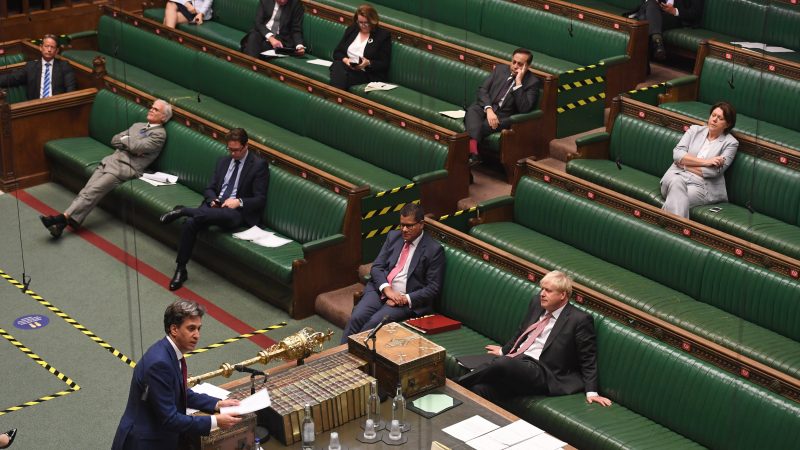
Labour has called on the government to strengthen its powers to intervene in foreign acquisitions that would damage the economy and urged ministers to do more to keep “high-growth and strategically important” companies in the UK.
The call from the opposition party comes ahead of debate this afternoon on the national security and investments bill in parliament, which seeks to give government greater powers to act when foreign acquisitions threaten national security.
Labour has argued that ministers must protect against companies in the UK being “stripped for parts or moved overseas” and has said the government should have intervened in the sale of UK tech company ARM in September.
Ed Miliband said: “It’s right that the government is bringing the UK into line with other countries to give itself powers to protect national security, but this bill is a missed opportunity to do so on wider industrial strategy.
“Time and again in recent years, the existing powers have proved inadequate to protect vital economic interests – from Pfizer’s attempted takeover of Astrazeneca to the recent takeover of ARM.”
ARM holdings, one of the UK’s most successful tech companies, was sold to US company Nvidia for £31bn earlier this year. Miliband has described the company as a “key national asset” that could now be shifted overseas resulting in job losses.
Labour has said today that it will call on minister to “come clean about whether they have obtained legal assurances about the company’s future in the UK” during the course of the parliamentary debate this afternoon.
The Shadow Business Secretary added: “Every month that goes by when ministers don’t legislate on these issues leaves us more vulnerable to losing vital economic interests.
“If the government is serious about industrial strategy, we need an ability to intervene in takeovers to protect our vital interests, particularly in our tech sector.”
The 2002 Enterprise Act allows the government to intervene in acquisitions on competition grounds, or on four other bases – financial stability, media plurality, national security or pandemic resilience – if the deal is sufficiently big.
Labour has highlighted powers available to other governments. The French government can block takeovers deemed strategic and the US committee on foreign investment can block acquisitions that have implications for national interests.
The intervention from Labour this morning follows claims by ministers that the Conservatives are abandoning the existing government industrial strategy and publishing a new and improved one this autumn.
The opposition party has highlighted that despite this claim, departmental transparency data shows that ministers have held only three meetings with stakeholders to discuss an industrial strategy this year out of a total of 1,375.
Labour has pointed out that none of these meetings were with tech companies, despite a government spokesperson saying that the new industrial strategy aims to put the UK “at the forefront of global technological opportunities”.
The new national security and investment bill to be discussed by MPs later today will seek to allow government ministers to retrospectively halt acquisitions any time in the five years after a deal is concluded.
Conservative MP and Business Secretary Alok Sharma has declared that while the government wants to ensure the country remains attractive to foreign investment, “hostile actors should be in no doubt – there is no backdoor to the UK”.




More from LabourList
‘Labour is being badly misled on housing’
Reeves bets on patience over populism
‘Energy efficiency changes must work for older private renters’